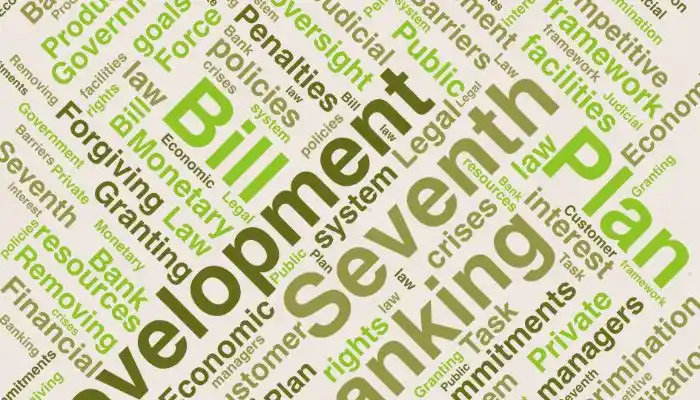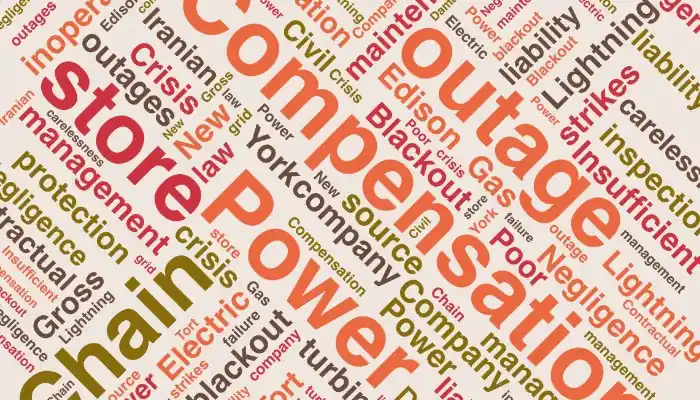Introduction:
The regulations in Paragraph “P” of Article 10 of the Seventh Development Plan Bill (2023-2027) address the reform of the framework and implementation of the country’s monetary policies. This paragraph stipulates that: “Any new obligations for the banking system that involve granting facilities, forgiving interest, penalties, and commitments, or offsetting individuals’ bank debts and transferring government debt to the central bank are prohibited.” This provision is comprehensively articulated, aiming to limit new obligations for the banking system by imposing prohibitions in various areas such as granting facilities, forgiving interest, penalties, commitments, and more. In this note, we intend to examine only the two primary prohibitions mentioned in this paragraph of the bill and evaluate their potential impacts. The purpose of this review is to identify how these prohibitions may serve as a starting point for limiting the influence of public law in the realm of banking facilities and affairs.
Section One: Prohibition on Creating Obligations for Granting Facilities
In many legal systems, laws exist to prevent discrimination in the granting of bank facilities, ensuring that all people can access bank resources without bias. These laws aim to create equal opportunities for accessing financial resources and to prevent unjust discrimination. Even the legal system of Iran has leaned in this direction in recent years. For instance, with the addition of Articles 61 and 62 to the Law on Removing Barriers to Competitive Production and Enhancing the Financial System of the Country, measures have been taken to facilitate the granting of facilities to producers. These laws obligate banks to provide facilities based on the resolutions of the Facilitation Task Force. Although Paragraph “P” of Article 10 of the mentioned bill is general and does not allocate Articles 61 and 62 of the recent law, which are specific to producers, an important and noteworthy point is that the prohibition on creating obligations for banks in granting facilities marks the beginning of limiting the influence of public law on banking facilities and affairs. By allowing banks more freedom in granting facilities, public rights and government oversight of banking activities may be sidelined. Considering the aforementioned points, it can be concluded that this prohibition increases the scope of bank managers‘ discretion in making decisions regarding the granting of facilities to individuals. This increase in discretion, in turn, leads to a reduction in oversight and governance over banking activities. Such a situation could result in discrimination in the granting of facilities and also in the misuse of bank resources by customers.
Section Two: Prohibition on Imposing Obligations Regarding Forgiveness of Interest, Penalties, and Commitments
Obligating banks to forgive interest is logically and legally justifiable. However, when it comes to penalties and commitments, it does not seem logical. Economic crises, sanctions, and unforeseen events like virus outbreaks can significantly impact the country’s economy and the contractual obligations of individuals and institutions. In such circumstances, obligating banks to forgive penalties is presented as a logical and legal measure to support the wide community of customers. The new rule prohibiting the imposition of obligations on the banking system regarding the forgiveness of penalties brings to mind the proverb, “If the first brick is laid crooked, the wall will remain crooked up to the sky.” This is because when the legislator faces this rule during a crisis and needs to establish new regulations, they ultimately try to adhere to it until a significant outcry from the banking system’s customers forces the legislator to review or change the laws.
Members of the Islamic Consultative Assembly are well aware of crisis situations such as floods, earthquakes, and droughts, which typically affect some loan applicants every year. Additionally, currency fluctuations sometimes exert so much pressure that some applicants cannot even repay the principal of their foreign currency obligations. If the penalties and commitments arising from these fluctuations and crisis conditions are not forgiven, we will undoubtedly face a wave of bankrupt companies. This is because bank managers lack the courage to decide on forgiving these penalties and are obligated to fully collect them. However, if a higher authority identifies the exceptional circumstances and sets the banking system’s obligations accordingly, the issue can be easily resolved without requiring bank managers to decide or individuals and companies to resort to the courts. Therefore, to reduce pressure on the judicial system and support the rights of the banking system’s customers, it is suggested that the governance of public rights over the banking system should not be weakened to protect the people’s rights.
Conclusion
The banking system, as one of the main pillars of the country’s economy, must operate within a framework of laws and regulations that support the country’s economic goals while protecting the rights of customers. The creation of discrimination in the provision of loans can lead to widespread dissatisfaction among loan applicants and violate their rights. Additionally, the prohibitions presented in the Seventh Development Plan Bill, on one hand, significantly increase the freedom of bank managers, and on the other hand, marginalize public rights and government oversight of banking activities. Therefore, to achieve economic goals and support customers’ rights, it is essential to draft and implement balanced, fair, and logically and legally reasoned laws and regulations. In this regard, maintaining a balance between public and private rights, as well as between the rights of banks and customers, can help create a stable, just, and efficient banking system.




